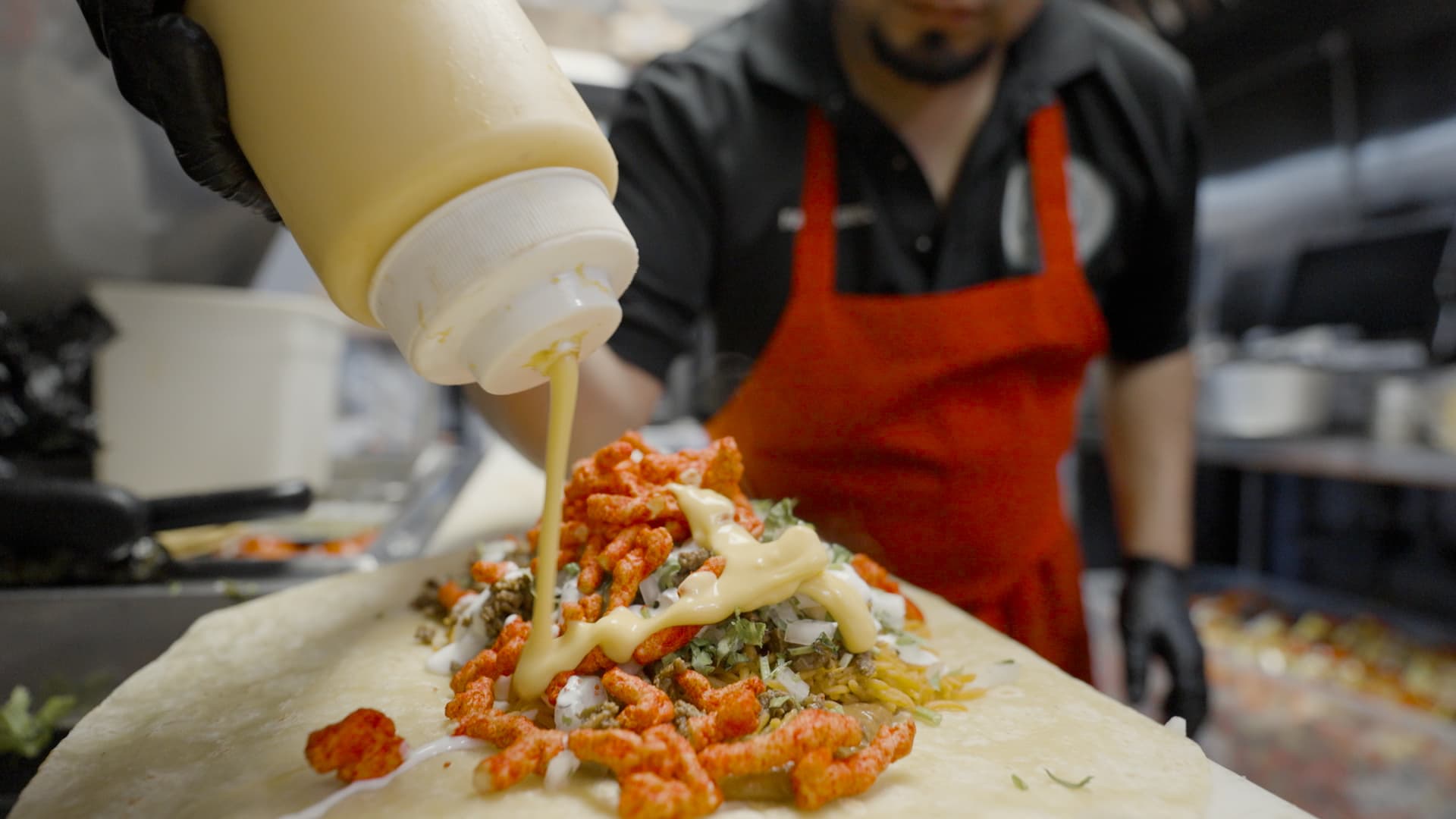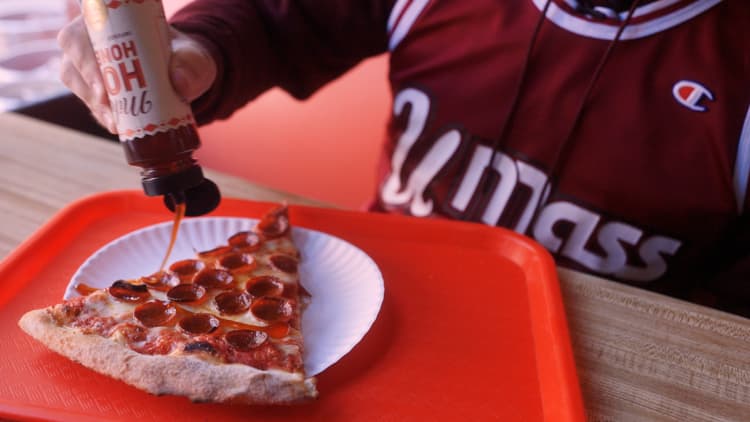
Ali Elreda believes in second chances — and he’s grateful for his own.
Elreda learned to cook in prison. He was convicted in 2009 for “intent to distribute” cocaine, according to court documents, and spent nearly six years behind bars between 2007 and 2013. Now, the 47-year-old runs a restaurant in Downey, California, named Fatima’s Grill after his 19-year-old daughter.
Fatima’s Grill, which opened in 2016, serves up a fusion of Mediterranean and Mexican-American cuisines — think a “shawarma crunch wrap” with meat, cheese and a layer of Flamin’ Hot Cheetos. The food pays tribute to Elreda’s Lebanese-American background and the heavily Latino community where he was raised in nearby Bell, California.
The menu items’ bright colors and flavor combinations made Fatima’s Grill a viral hit on social media, where the restaurant boasts 1.4 million total followers between TikTok and Instagram. It grew popular enough to become a franchise business in 2021: Six new locations have opened across Southern California, New York and Texas.
The original location brought in $1.1 million in total revenue last year, according to documents reviewed by CNBC Make It. It barely missed being profitable, but has come out ahead in past years — and is on track to bring in as much as $1.8 million in 2023, Elreda says.
A majority of Elreda’s income comes from franchise royalties and fees now anyway, he adds. He declined to share specific figures, citing contractual obligations — but he notes that he’s not slowing down, with plans to enter Atlanta and Cleveland next year. Further down the road, he’s eyeing Canada, he says.
“Being able to walk in and pull the doors open at an out-of-state location is just a dream come true,” says Elreda.
A mission to ‘bring people together’ with food
While serving time, Elreda took culinary classes and signed up to work in the prison kitchen. He’d loved being around food since childhood, following his mother around the kitchen “sticking my hand in the pot” as a kid, he says.
But while living in a court-mandated halfway house in 2011, he had trouble finding a job in a professional kitchen. A cousin who owned a stall at a meat market in Bell offered him a job cooking at a small grill — reminiscent of Elreda’s prison cooking setup.
Eventually, the cousin moved abroad and struck a deal with Elreda: $80,000 for ownership of the stall. Once in charge, Elreda experimented with mashing together the cuisines of his youth, making Mediterranean food and tacos on the small grill.
Ali Elreda opened Fatima’s Grill in 2016 in Downey, California.
Source: CNBC Make It
The food grew a following, so Elreda sold the stall — for $125,000 — and poured the money into opening a proper restaurant, in what used to be a Chinese takeout restaurant. Under the banner of Fatima’s Grill, Elreda’s inventive fare — like his signature “Lebamex” hot sauce, short for Lebanese and Mexican — took off on social media.
“People started driving from Las Vegas … Chino Hills, from San Fernando [Valley]. These are people taking 45 [minute] to an hour drives, like mind-blowing,” says Elreda.
The attention is proof that food can “bring people together” across different cultures, he adds: “I think food is the best way, because it has no color lines. It’s just right there, like, it tastes good. It better taste good.”
From long lines to multi-city expansion
When the wait times at Fatima’s Grill surpassed “two or three hours,” with people lined up around the block, Elreda decided to grow the business again. This time, instead of finding a larger location, he partnered with Miami-based consulting firm Franchise Creator to guide him through the franchising process.
The expansion over the last two years hasn’t come without hiccups. A Detroit location recently closed over “franchise violations,” but another location will open in the Detroit suburbs in 2024, says Elreda’s sister Susanne, who serves as his franchise operations director.
Elreda, standing outside the front doors of the original Fatima’s Grill.
Source: CNBC Make It
On the whole, though, Elreda considers the franchising process a success, especially given how much of his income comes from the newer locations. And while the original Fatima’s Grill posted a loss of roughly $150,000 last year, it’s profitable over the course of its lifetime so far, he says.
He’d know: Even amid the business growth, Elreda says he still tries to stick to his daily routine — including working the grill in Downey himself.
“I still manage my own self, putting in my own hours from 10 a.m. to 5 p.m.,” he says, adding: “I love what I do. So as long as I’m healthy and able to stand on my feet, I’d like to be hands-on as long as I can.”
DON’T MISS: Want to be smarter and more successful with your money, work & life? Sign up for our new newsletter!
Get CNBC’s free Warren Buffett Guide to Investing, which distills the billionaire’s No. 1 best piece of advice for regular investors, do’s and don’ts, and three key investing principles into a clear and simple guidebook.

